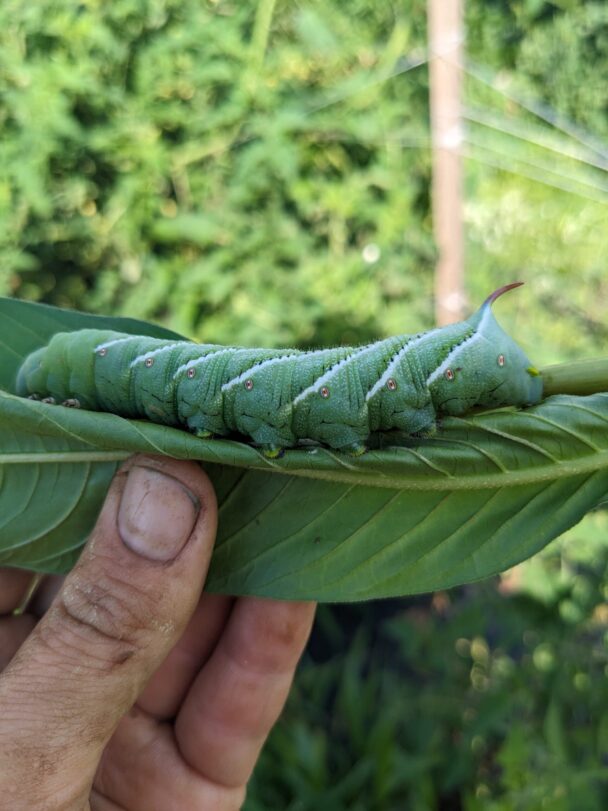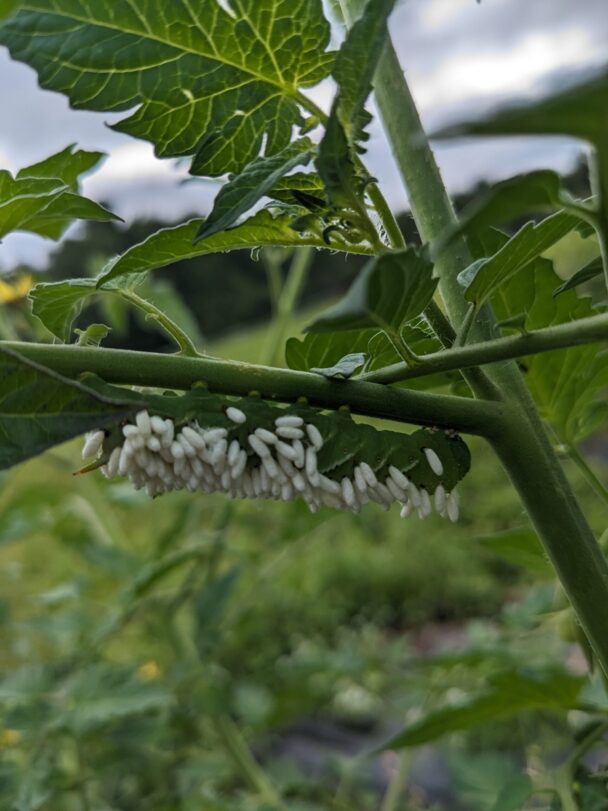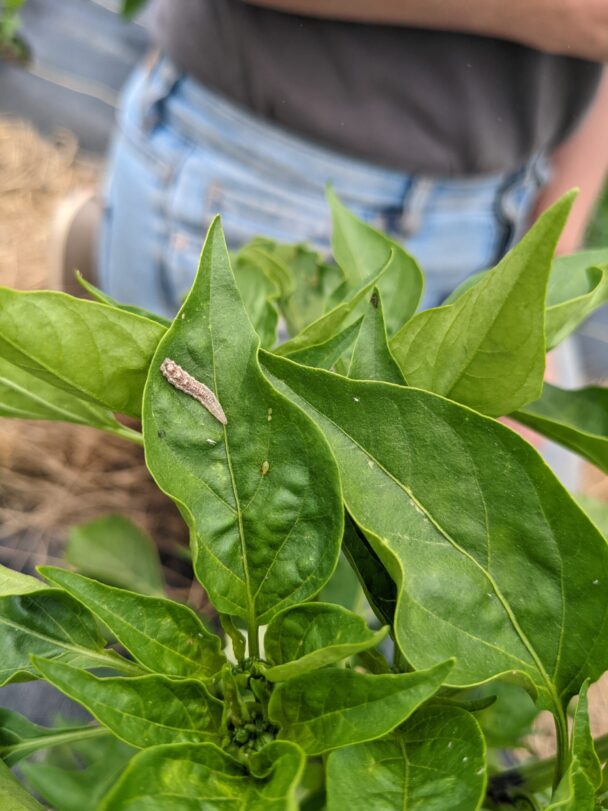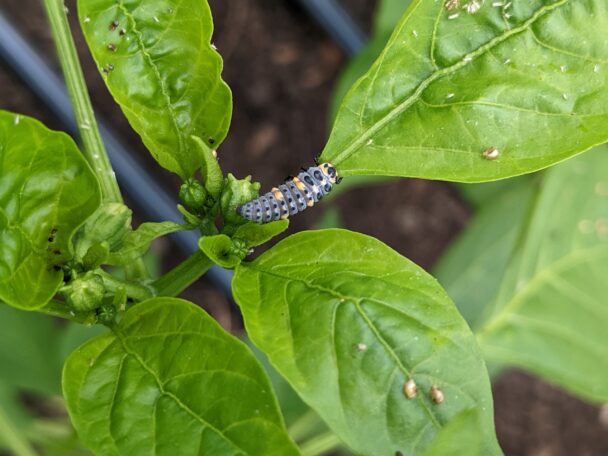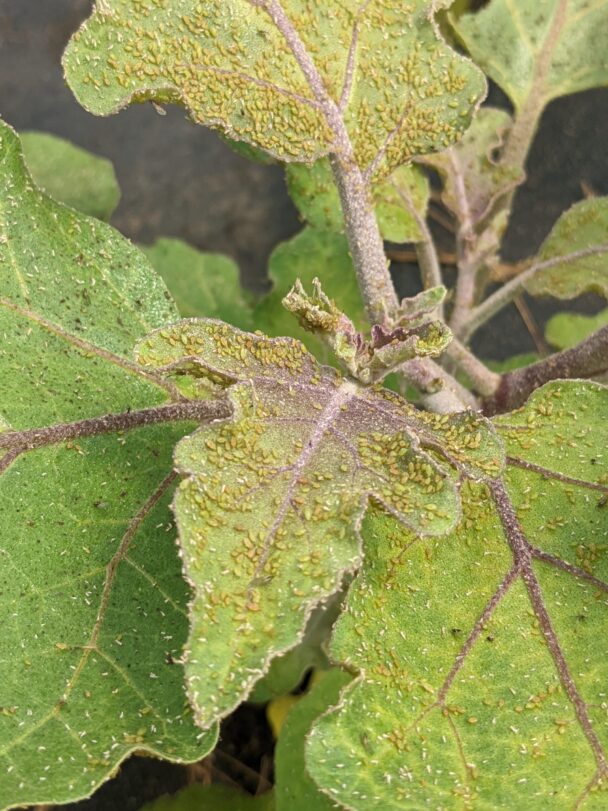One of the most common questions our farmers get asked by customers is how do you keep all the pests away?
The short answer is we don’t!
As farmers, we plan for a certain amount of loss from pests. However, there are many strategies we can do to reduce the impact. It is helpful to understand the pest’s life cycle to know when the pest emerges and when to monitor your crops closely. It is also helpful to understand behaviors of the pest, such as where they like to hide on the leaves, their speed, or their mating behaviors. A lot of this knowledge comes with experience and practice, but there is a lot of information online as well. (My favorite resource is the UMASS Center for Agriculture, Food, and the Environment.)
Organic strategies to manage pests include physical barriers like reemay, organic pesticides, planting habitat for predator populations, and more. Some of my favorite farm memories include watching beneficial hoverflies appear in defense of an aphid infestation. Insects are fascinating!
Management Strategies for Pests
Below is a list of our most popular pests on the farm, along with some of our preferred management strategies.
Pest: Flea beetle
Impacted Crops: Brassicas including bok choy, arugula, radish, broccoli
Management Strategies & Beneficial Predators: Reemay, organic sprays
Pest: Cucumber beetle
Impacted Crops: Cucumbers, squashes, watermelon, cantaloupe
Management Strategies & Beneficial Predators: Reemay, sticky traps with pheromones
Pest: Tomato hornworm
Impacted Crops: Tomatoes
Management Strategies & Beneficial Predators: Manually destroy, Predator is the beneficial parasitic wasp
Pest: Thrips
Impacted Crops: Onion, leeks
Management Strategies & Beneficial Predators: Plant habitat for beneficial predatory lacewings
Pest: Cabbage worm
Impacted Crops: Broccoli, cabbage, bok choy
Management Strategies & Beneficial Predators: Reemay, planting bird habitat, organic spray
Pest: Leaf miner
Impacted Crops: Spinach, beets, Swiss chard
Management Strategies & Beneficial Predators: Reemay and destroying infested leaves
Pest: Colorado potato beetle
Impacted Crops: Potatoes, eggplant
Management Strategies & Beneficial Predators: Reemay, organic sprays, manually destroying
Pest: Aphids
Impacted Crops: Transplants in greenhouse, crops grown indoors, leafy greens, turnips, radishes, many more.
Management Strategies & Beneficial Predators: Attract beneficial predatory insects like lady beetles, hoverflies, midges, lace wings. Nature usually works this one out for us.
Take a Closer Look
If you are a total bug nerd like me, you have probably started looking up pictures online of all these insects. In case you haven’t, here are few of my favorite insect pictures over the years.
